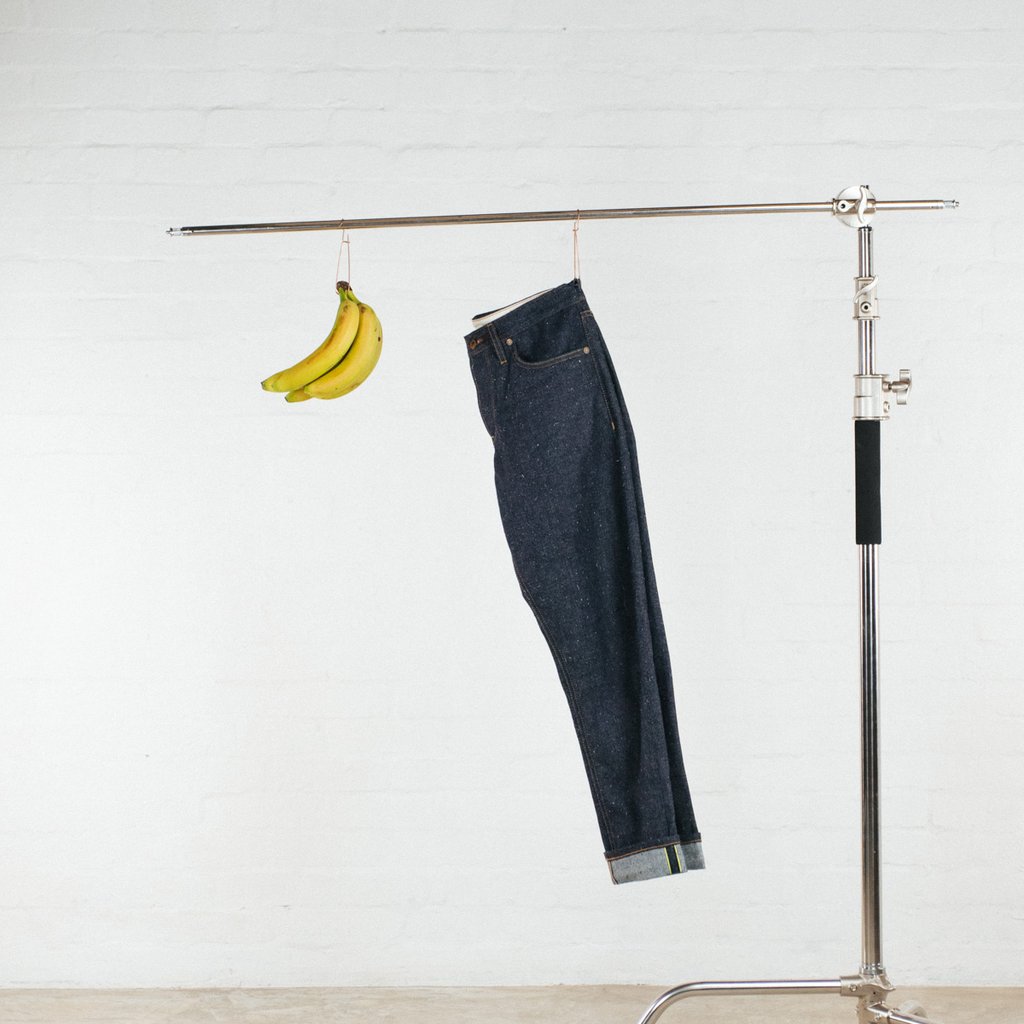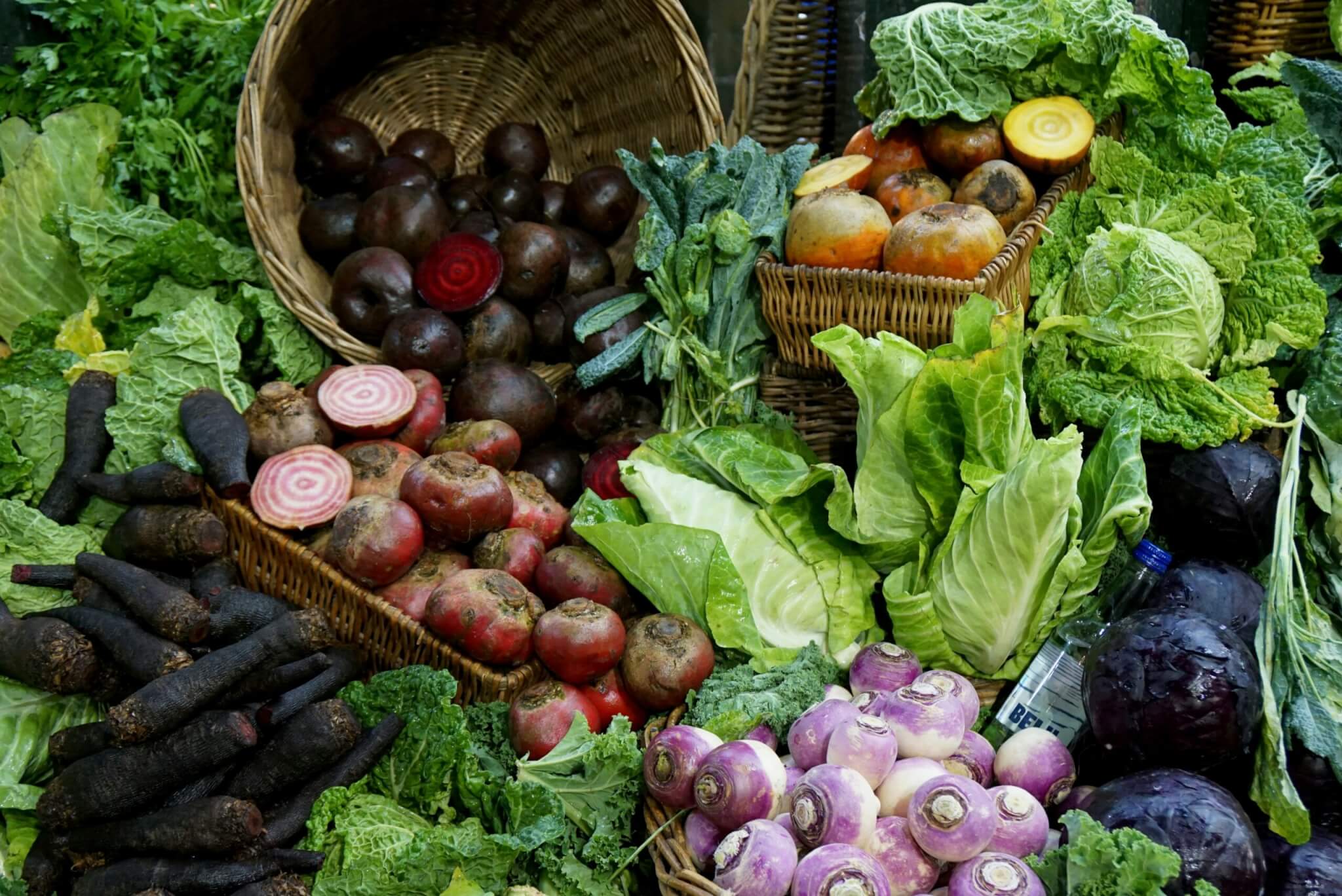Ethical jeans company Hiut Denim is launching a limited edition range of jeans made from banana fibres to use up a wasted by-product and create a more sustainable denim.
The jeans, made by a sustainably-minded traditional denim mill in Japan, will be made from fabric that is made of 30 per cent banana fibres, a material that has been used as a sustainable alternative to silk in traditional Japanese kimono making.
With a limited run of only 30 pairs, the jeans will be made in Wales and sell for £300 a pair.
Writing in an email to customers, Hiut Denim co-founder David Hieatt said: “The fibres are made from the stem of the plant, which would otherwise be wasted, as banana trees only give fruit once per cycle and are then destroyed.”

After the plant is harvested, the banana fibres are made into a paper which is then spun into yarn. The yarn is woven and the fibres produced are used in the manufacturing of the fabric. Fabric made from banana fibres is known to be both highly durable and supple, said Hieatt,
Cotton, the main fibre in traditional denim, is one of the most environmentally damaging crops in the world, using vast amounts of water, and high numbers of chemical inputs where it is grown non organically.
Hiet Denim, whose jeans are reportedly worn by Meghan Markle, is based in Cardigan, south Wales, where it has set about reigniting the traditional denim industry, which shut down when a major factory closed its doors.
It has various ethical initiatives including a ‘no wash’ campaign, encouraging jean wearers to go as long as possible without washing their denim and reduce their water footprint, as well as developing sustainable materials. In the past, they have produced denim made with hemp, paper fibres, as well as plastic free.
“Every day as I pull in to the factory, I look at the question on the side of the building; ‘How can we be lower impact today than we were yesterday?’” wrote Hieatt.
“This denim is one small step towards that goal. Using fibres that have incredible properties, which would otherwise get burnt, feels like a baby step in the right direction.”












I’m sorry to say this but to my cynical mind this smacks of “sales gimmick” what with comments about supposedly worn by “Meghan Markel” whoever she might be and others of that ilk. If it is to reseach in to the reuse of redundant banana “trees” why do they need to make a few and sell them for horrendous prices? That is “profit” rather than reseach I’m afraid.
To add to this it seems the great unwashed and being encouraged to become even greater unwashed – dirty clothes do nothing for anybody – they carry dirt and smells and thus disease which can harm others in the name of so called fashion! The fact that somebody has thought of recycling redundant banana trees is to the good – but not this way!
The Walrus
Thank you for this article full of positives. In this age of fast fashion it is good to see that there are people challeging the staus quo, innovating and coming up with new ways. I presume the idea is that eventually this process will become cheaper and available for all as a replacement to using land to grow cotton. I really hope this company grows and this product is taken up as mainstream, if it needs famous people to spread the word and their money to develop, so be it.
To sustain a banana plantation the stem of the current year is usually allowed to be be ‘absorbed’ by the plant to provide some of the nutrients for the following year. Using the ‘remains’ then, which may be rotten (if they can be) might be a very good idea in the clothing material was produced locally to where the bananas are growing! But not shipping rotten banana stalks to the UK